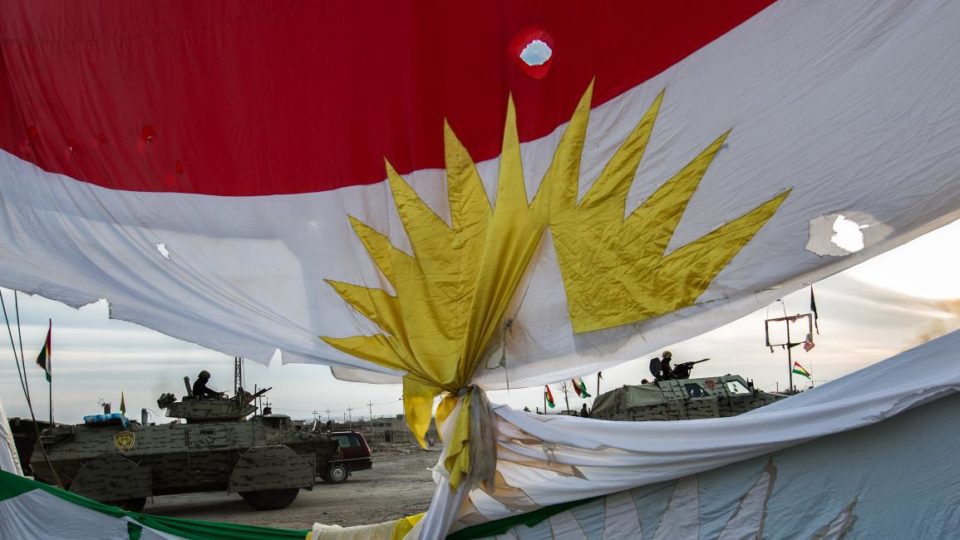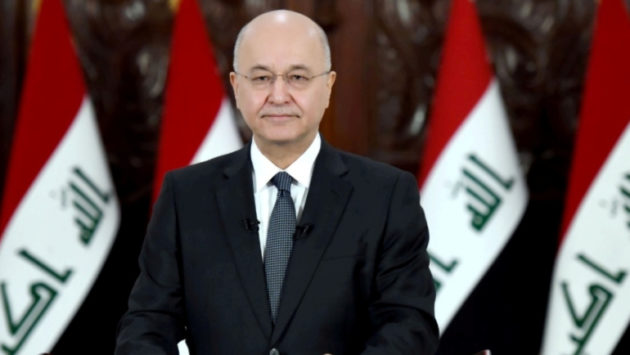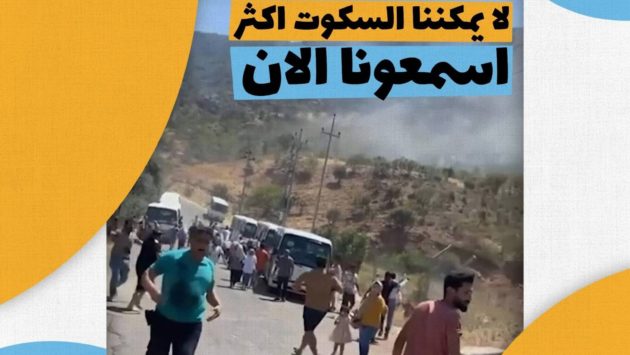What is Behind the Delay in Implementing of the Agreement to Stabilize Sinjar?
On 23 October, a prominent Iraqi official in Baghdad revealed to Al-Arabi Al-Jadeed that there will be a delay moving forward with the agreement to normalize the situation in the city of Sinjar, west of Nineveh. The agreement was recently signed in both Baghdad and Erbil, and attempts to resolve problems and challenges inside the city. There are now fears that any attempt to implement the agreement will cause armed clashes and increase internal discord.
At the beginning of October, the Iraqi government announced that it had come to an agreement with the Kurdistan Regional Government of Iraq which would settle the tensions brewing in the city of Sinjar, where there is a dispute between the two governments. The city is home to a diverse group of inhabitants, and sectarian and national conflicts threaten lasting peace. The agreement aimed to end control of the city by armed groups and ensure that power is shared fairly and justly. More specifically, the agreement states that Baghdad will manage the security in Sinjar in coordination with Erbil, while the city of Mosul, the capital of Nineveh Governorate, will take over the service aspect of the city. The agreement ensures that all the city’s residents, whether Arab, Kurd, or any other, can return without exception, while all foreign groups would be deported, in particular the PKK militants that stand against the government in Ankara.
The militant groups have exploited the situation in Sinjar in order to sow chaos akin to that created by the terrorist organization Daesh, which infiltrated the city and violently imposed its influence. Currently in Sinjar, there are different militias with multiple loyalties and affiliations, the most prominent of which are the Yazidi Protection Units led by Haydar Shsho, and the Sinjar Protection Units militia, which is the Iraqi arm of the Kurdistan Workers Party. These groups possess a powerful arsenals of weapons.
There is also the armed militia formed in 2015 — now known as ‘The Yazidi Crowd’— which is made up of hundreds of Yazidi Kurds from the Kurdistan Workers Party who were supported by the Party with training and weapons before the Abdul Mahdi government made it a member of his Popular Mobilization factions, themselves part of the Iraqi Armed Forces. This decision was seen by some politicians as one of the reasons for the security setback in Sinjar because it granted official status and support to a militia that continues to be loyal to the head of the Kurdistan Workers Party, Abdullah Ocalan, who refuses to accept the decisions of the Iraqi government.
An official in the Iraqi Prime Ministry spoke anonymously to Al-Arabi Al-Jadeed, and stated that “the federal government decided to wait on implementing the agreement signed with the Kurdistan Regional Government to normalize conditions in Sinjar because there is political and popular rejection of it,” explaining further that “the Iraqi government does not want to implement the agreement because of its rejection by several armed parties in the city — lack of more unanimous support could lead to war or strife inside the city. The government is thus seeking to solve Sinjar’s problems through various communication channels,” he continued, noting that “powerful armed factions in Sinjar are against the agreement, as they do not want to leave the district that they control, exploiting certain areas for commercial and other businesses.”
The unnamed official added that “the Iraqi government is currently negotiating with effective and influential political forces, with the aim of reaching an agreement to implement the Sinjar Agreement but without problems that could lead to a civil war within the district.” There is, he suggested, a genuine effort in Baghdad now to “implement this agreement soon, especially because dialogues between various people and groups has reached advanced stages within political parties, which in turn have influence over the armed factions, and some local forces in Sinjar.”
Imad Bajlan, the leader of the Kurdistan Democratic Party, said in a telephone conversation with Al-Arabi Al-Jadeed that “despite the sensitivity of the situation, there has been a reduction in clashes amongst different parties — step by step, Sinjar is moving towards stability.”Bajalan went on to say that “the agreement between Baghdad and Erbil about the Sinjar district will be implemented soon, especially given that the Popular Mobilization Forces did not officially reject it, nor did the Shiite political forces nor even the Kurdistan Workers Party. Instead, they have agreed to leave the district in the next few days, and the rest of the factions have agreed to implementing other aspects of the agreement after this initial stage.”
“The issue of Sinjar is very sensitive, especially since this district had endured the horrors wrought by Daesh. That is why this issue is being dealt with carefully and slowly, but rest assured, the agreement has been concluded and will be implemented in full very soon.” But of course, agreements on paper differ from agreements in reality, from their actual implementation.
The former governor of Nineveh, a leader in the Salvation and Development Front, Athel Al-Nujaifi, said in an interview with Al-Araby Al-Jadeed, “We are used to the fact that many decisions take a long time to garner support from public and political forces, and that is why we are not surprised that the implementation of an agreement about Sinjar has been delayed by Baghdad and Erbil, especially since we believe that before implementation, there must be public conviction of the people of the region to cooperate in implementing this agreement.”
Al-Nujaifi added that “the implementation of the Sinjar agreement between Baghdad and Erbil will take place very soon. This area must be saved from the PKK and all other armed militias which seek to destabilize the district. This is especially important after the incident of the killing of a number of members of the Shammar tribe by the Workers Party, at which point the area became an arena of a serious armed conflict. The latest Sinjar agreement hopes to prevent future fighting between inhabitants, but its application should be cautious so that it does not become an opportunity to ignite civil war in the area.”
In a telephone conversation with Al-Arabi Al-Jadeed, the leader of the Al-Fateh coalition, Ghazanfar Al-Battikh, reiterated the widespread concern that the agreement must be implemented. carefully, and only after it has public support. He indicated that “there is a fear of the return of the Peshmerga forces to Sinjar district, especially since these forces suffered at the hands of many from Sinjar,. The situation is complex and cannot be implemented if it suffers from political and local rejection. He added that “there is a fear that this agreement will be forcefully imposed which would likely deepen the crisis rather than solve it. Without support, the agreement could lead to clashes and become a threat to peace. These fears are the cause of the delay in implementing the agreement.”




